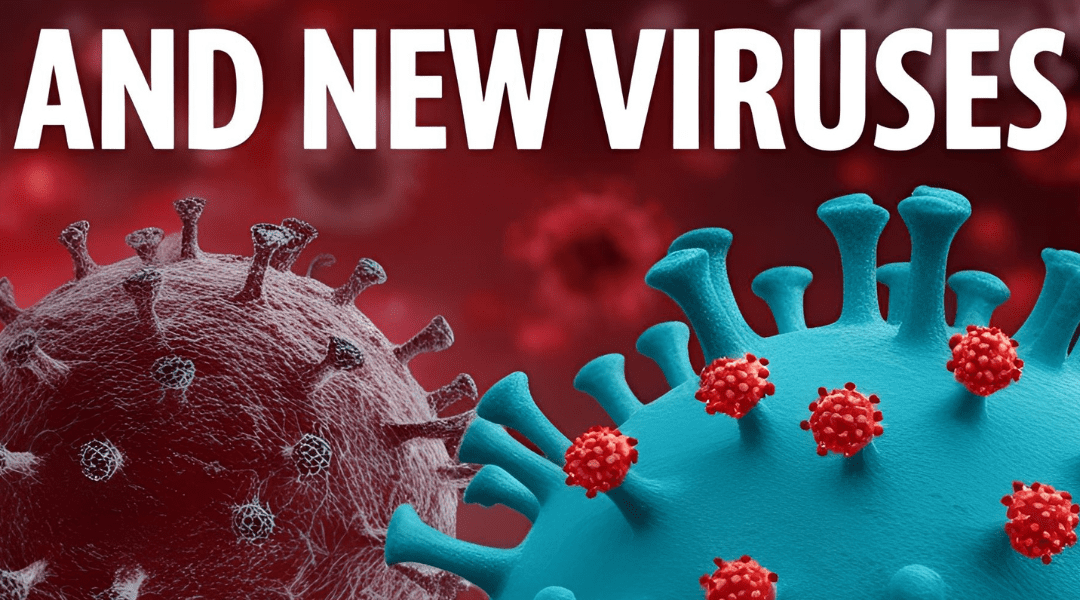Public Health and the Fear of New Viruses

In recent years, public health has become a major global concern, particularly with the emergence of new viruses and pandemics. The COVID-19 pandemic highlighted the vulnerabilities of healthcare systems worldwide, and even as the world recovers, new threats continue to surface. The fear of infectious diseases has grown significantly, prompting governments, researchers, and the general public to remain vigilant and proactive in their response strategies.
1. The Emergence of New Viruses
Viruses have been evolving for centuries, but globalization, climate change, and urbanization have increased the likelihood of their rapid spread. New viruses such as the coronavirus variants, monkeypox, and avian influenza have sparked concerns over public health safety. The frequent emergence of novel pathogens is a reminder of the ever-changing nature of infectious diseases and the necessity for ongoing research and preparedness.
One of the major concerns is zoonotic transmission—when viruses jump from animals to humans. Deforestation, illegal wildlife trade, and habitat destruction increase human exposure to new pathogens, making outbreaks more likely. COVID-19 is a prime example of how a virus can spread globally in a short period, disrupting economies and societies.
2. The Impact on Public Health Systems
The outbreak of infectious diseases places immense pressure on healthcare systems. Hospitals become overwhelmed, medical supplies run low, and healthcare workers face extreme workloads. The COVID-19 pandemic exposed gaps in global health infrastructure, showing that even the most advanced nations struggle to contain widespread outbreaks.
Developing countries face even greater challenges due to limited medical resources, inadequate healthcare infrastructure, and a lack of trained professionals. As a result, diseases that could have been managed effectively in well-equipped facilities become fatal due to the unavailability of proper treatment.
3. The Role of Vaccination and Prevention Measures
Vaccination has played a crucial role in controlling the spread of infectious diseases. From smallpox eradication to polio prevention, vaccines have saved millions of lives. The rapid development of COVID-19 vaccines demonstrated how scientific advancements can provide swift solutions to global health crises. However, vaccine hesitancy remains a major obstacle, fueled by misinformation, fear, and distrust in healthcare institutions.
In addition to vaccines, preventive measures such as hand hygiene, mask-wearing, and social distancing have proven effective in reducing the transmission of viruses. Governments and public health organizations must emphasize the importance of these measures to prevent future outbreaks.
4. The Psychological Impact of Virus Outbreaks
The fear of new viruses has psychological implications, leading to anxiety, stress, and social isolation. During the COVID-19 pandemic, lockdowns, travel restrictions, and economic uncertainties affected mental health on a massive scale. Many individuals experienced depression due to prolonged isolation, loss of loved ones, or financial instability.
Misinformation and panic also contribute to widespread fear. Social media platforms play a significant role in spreading false information about viruses, leading to unnecessary alarm. Public health agencies must actively combat misinformation by providing accurate and timely information.
5. The Future of Public Health Preparedness
Governments and international organizations are now focusing on strengthening public health preparedness to mitigate future pandemics. This includes improving early detection systems, investing in medical research, and enhancing global cooperation.
The World Health Organization (WHO) and the Centers for Disease Control and Prevention (CDC) continue to monitor emerging infectious diseases, ensuring that necessary precautions are taken. Advances in artificial intelligence and big data analytics are also aiding in the early detection of disease outbreaks, allowing for quicker responses.
6. Ethical Considerations in Disease Control
While containing viruses is crucial, ethical concerns arise when implementing strict measures such as lockdowns, mandatory vaccinations, and travel bans. Balancing individual freedoms with public safety remains a challenge for policymakers. Ensuring transparency, respecting human rights, and considering the economic impact of health policies are necessary for a fair and effective response.
Conclusion
The fear of new viruses is justified, given the devastating impact of past outbreaks. However, advancements in science, healthcare infrastructure, and global cooperation provide hope for better disease management in the future. By prioritizing research, public awareness, and early prevention strategies, societies can minimize the risks associated with emerging infectious diseases. Governments, healthcare professionals, and individuals all have a role to play in ensuring a healthier and safer world for future generations.




